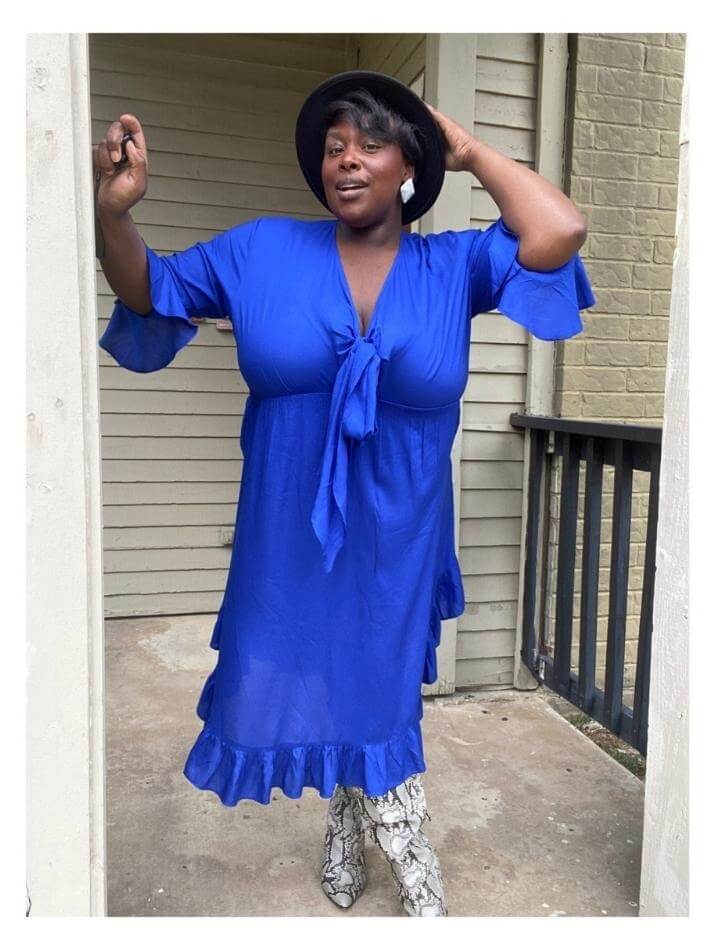
The terms ‘ethical’ and ‘sustainable’ clothing are used a lot to mean the same thing and in a lot of ways they are very similar. Yet ethical fashion focuses a lot more on the social impact of the fashion industry both on people and animals.
For sustainable fashion, it’s the planet that counts. Sustainable practices in both production and manufacturing are all about reducing our carbon footprint. Shop our edit to check out sustainable clothing options up to 6X.
Read more from the Insyze sustainable series such as finding our top picks for plus size sustainable clothing and our investigation into whether polyester is bad for the environment.
What is Ethical Fashion
Ethical plus- size clothing and fashion brands are all about what is morally right.
Whether it’s the farmers, designers, seamstresses or retailers, all these people have a part to play when it comes to us buying new clothes so it just makes sense that they are all treated fairly, paid a living wage and are of a working age. - No child labour allowed!
Clean and safe working conditions are also top of the list and we love hearing about brands that regularly talk to and visit their factories to stay up to date with the people who work with them as well as making sure that conditions are all up to standards.
Giving back through social enterprises is also an important way that ethical brands are leading the way to a fairer reality. From donating to charity or planting trees to neutralize carbon emissions, they are dedicated to giving something back.
Ok yes, so buying ethically does normally come with a higher price tag. But when you know that you are doing the right thing and supporting communities, that makes it worth it, right?
What’s the Difference Between Fair Trade and Ethically Sourced
You’ve probably come across the Fair Trade logo (the yin and yang peace symbol) before on things like chocolate or coffee and the idea of Fair Trade has actually been around since the 80s and this got us thinking. Are there any differences between items that are Fair Trade and those that are ethically sourced?
For Fair Trade, empowering those from marginalized or disadvantaged groups is the name of the game, giving them a leg up so that they can have a more level playing field with the international marketplaces.
Ethical plus-size clothing brands look at the whole supply chain on a global scale and it’s social impact.
For a brand to be recognised by the Fair Trade organization they need to adhere to ethical practices. BUT ethical brands don’t necessarily have to have Fair Trade principles in place. Although we’d prefer it if they did.
Is Ethical Fashion Vegan?
Animal welfare plays a big part in ethical fashion and for many this means choosing to buy and wear items that are plant based over those made from animal products. Opting for plastic based ‘pleather’ and acrylics or polyester instead of wool or leather.
For others though, they will still go out to buy a wooly knit as long as they know that the sheep (or goats/ alpacas etc.) providing the wool were treated well and not harmed.
For example, mulesing in sheep is done a lot in the trade to prevent fly strike - look it up ( warning it’s pretty grim) however it's a nasty process and hurts the sheep too. 🙁 Therefore when shopping for your next sweater look for mulesing free styles These may be more expensive but you’ll know that the animal wasn’t put through this castration-like ordeal.
Other certificates to look out for the Responsible Wool Standard or ZQ Merino standard.
So to answer this question, the answer is confusingly both yes and no depending on where you stand on the vegan debate but it basically comes down to animal welfare.
How to Shop More Ethically
If you want to be a more responsible shopper and buy more ethical plus size clothing we’ve got some quick wins for you so that you can look good, feel good and do good too:
- Do your research
It’s good to be informed and that starts with the ‘About us’ page. When buying from a new brand, find out all you can about their ethical practices, stories and see if their values are in line with yours.
- Quality over quantity
Budget is the number one reason stopping us buying clothes all day, everyday.
But lots of cheap, low quality clothing might only be worn once ( twice if it’s lucky) before they get thrown out. So it’s actually more cost effective to invest in a few higher quality items so you'll waste less and shop more ethically too!